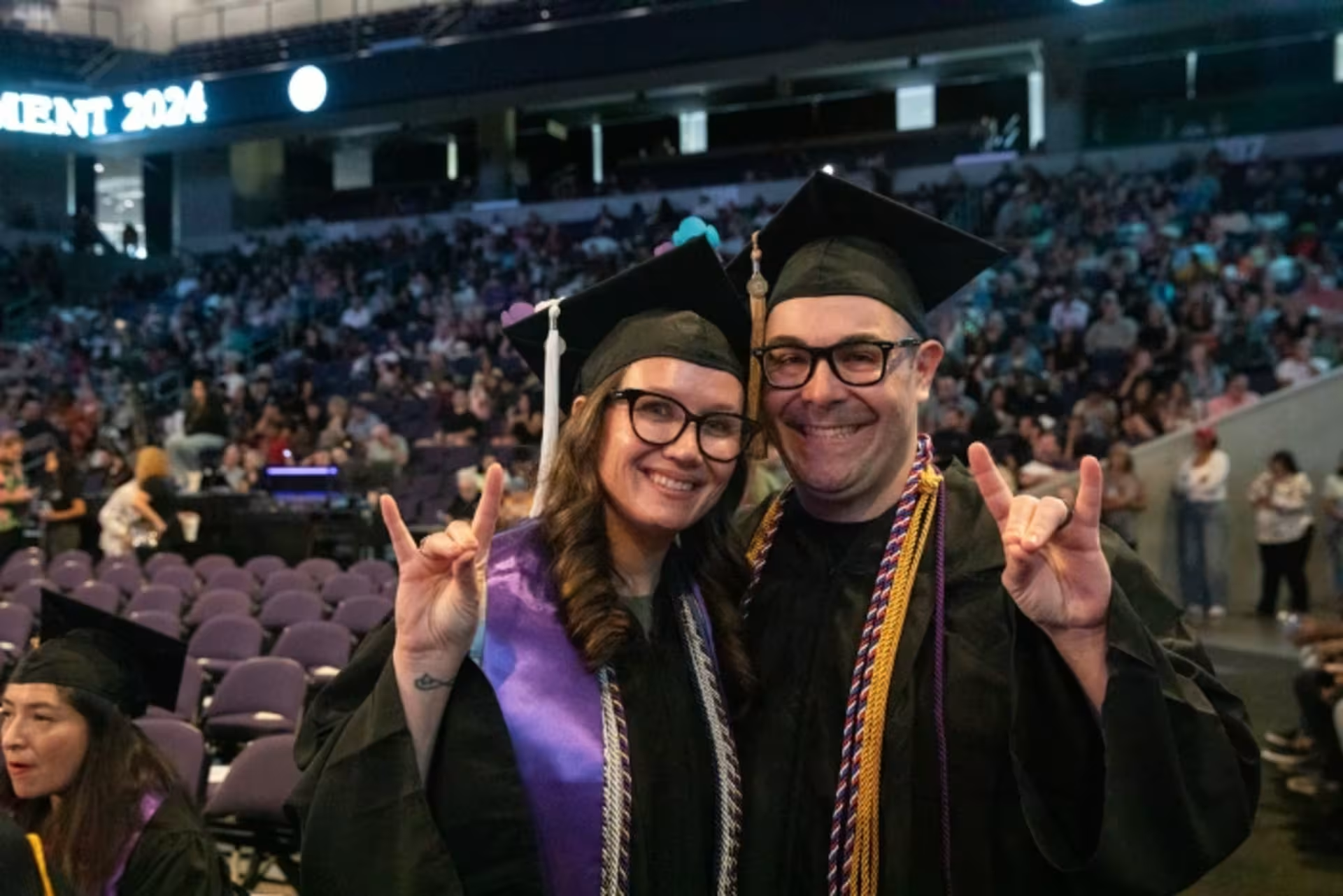
BA in Communications: Interpersonal Communication and Human Relations Emphasis
Examine How To Improve Interpersonal Communication and Human Relationships
Even in today’s technology-rich economy, much of our success is still based in effective collaboration and communication between people. In nearly every field, human interaction occurs, whether it’s face-to-face or through digital means. This Bachelor of Arts in Communications with an Emphasis in Interpersonal Communication and Human Relations is designed to teach you how to navigate interactions and leverage specific interpersonal skills in order to facilitate productive communication.

Up to 90 credits, only 84 can be lower division
Credits: Fill out the Lopes Eval to find out what will transfer
Admission Requirements (Bachelor's)
- 16+ years old
- High School Graduate
- 3.0+ Unweighted GPA
OR 2.5+ Unweighted GPA and
- ACT: 19
- SAT: 1000*
Admission requirements may differ based on degree level, program and modality, or transfer status. Some programs of study may require a higher GPA and/or other qualifying criteria for admission. Please review full admission and program requirements in the University Policy Handbook.
*Math and reading only on a 1600 point scale (test date after 3/1/2016). SAT score of 1380 required for 2400 point scale (test date before 3/1/2016).

Earn Your BA in Communications From GCU
At GCU, Christian principals are integrated throughout the interpersonal communications courses to determine how we can base our interactions in a Christian worldview.
Take Interpersonal Communication Courses Online or on Campus
Study Online With Ultimate Flexibility
For those who require a flexible schedule, this bachelor’s in communications is offered fully online so you can complete your courses anytime from virtually anywhere. You will have access to online learning resources and an interactive digital platform, which allows you to collaborate with your professors and peers throughout the program.
Study Human Relationships and Interpersonal Communication on GCU’s Campus
If your learning style works best with in-person classroom interaction, this BA in Communications is also available through traditional or evening classes. In addition to taking courses on GCU’s campus, you will have access to campus life and student support services. Evening classes are offered once a week, one class at a time for additional flexibility and convenience.
BA in Communications Coursework
Classes in this BA degree go beyond the theoretical and allow you to enact communication concepts in professional and relational situations.
Throughout the program, you will be taught how to:
Develop Your Communication and Interpersonal Skills
You will be taught to utilize these skills in a variety of different contexts as well as how to train others in using these skills. Courses cover how to facilitate communication across different cultures and how to carry these skills over into online settings.
Throughout the program, you will have the opportunity to develop interpersonal communication skills in the following key areas:
Nonverbal and verbal communication analysis
Relational communication
Leadership
Group communication
Speech communication
Social influence
Conflict negotiation
Career Paths for Graduates With a BA in Communications
This BA in Communications covers a wide breadth of interpersonal communication and human relationship topics, helping to prepare students with the foundation for a career in a variety of industries. Graduates of this program may be qualified for jobs in fields such as:(See disclaimer 1)
To position yourself for possible career advancement, you may choose to use your foundational skills to pursue a graduate degree or obtain licensure.
Pursue Your Communications Studies at an Accredited University
GCU is proud to be institutionally accredited by the Higher Learning Commission, providing quality in education since 1968. Our university meets the HLC’s high standards in areas such as integrity, governance, learning effectiveness, admissions, student services, stewardship and academic achievement.
Interpersonal Communication and Human Relationship FAQs
If you are interested in pursuing a communications degree and would like to learn more about the focus in interpersonal and human relations, please read though our answers to these commonly asked questions.
Why is interpersonal communication important?
What is the importance of human relationships?
What are examples of interpersonal communication skills?
Program Curriculum
General Education Requirements
Required General Education Courses
Core Courses

Are you ready to get started on developing productive communications skills that you can use throughout your career and life? Complete the form on this page to connect with a university counselor. They can help answer your questions and start you on the admission process for the BA in Communications program.
- Keiling, H. (2025, March 13). 15 Top Jobs for Graduates With Communications Degrees. Indeed. Retrieved June 4, 2025.
- High Country Behavioral Health. (2021, Jan. 18). The Importance of Social Relationships to Physical and Mental Health. Retrieved on Oct. 26, 2023.



